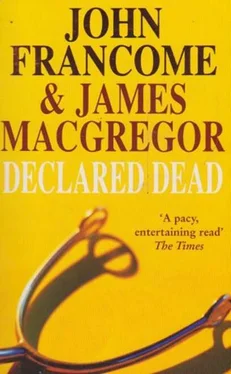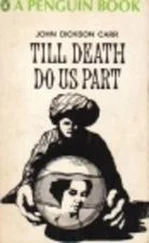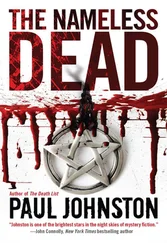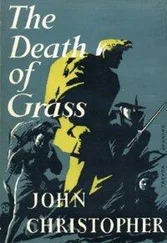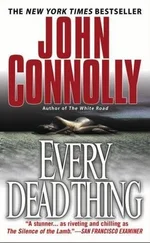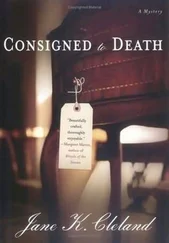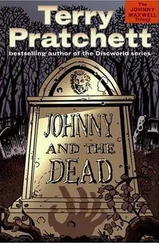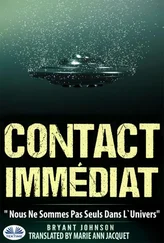I arrived back at the yard to find Ralph in a state of deep depression. A date had been fixed in six weeks' time for our hearing at the Jockey Club in London and even though he had done nothing wrong and his conscience was clear, the prospects of an acquittal were about twenty to one against. The disciplinary committee had wide powers, ranging from a fine, to suspension, to the withdrawall of a licence to train, and as far as Ralph was concerned, either of the last two would be extremely damaging. He was in the habit of running his horses on their merits and he certainly would not welcome any public adjudication to the contrary. No respectable owner wants to be associated with a crooked stable. I knew Ralph didn't blame me for what had happened at Worcester, yet equally I was under no illusion that he believed the incident wouldn't have been avoided if a male jockey had been riding instead of me. For my part, I really didn't see how in the circumstances anyone could have ridden any differently. Although I would think that, wouldn't I?
* * *
The next day we travelled up to Wolverhampton, where Ralph had two runners. The Midlands course is notorious for its penultimate fence, which claims innumerable victims, and I did well to finish on a novice chaser who seemed to think that the art of jumping was to go through the fence rather than over it. My second ride, in the long-distance hurdle, was a good deal more comfortable. Having ridden a patient waiting race, without any Eamon Brennan to box me in, I was able to come with a strong late run and win, going away by a couple of lengths.
There is simply nothing like the taste of victory and even though there was only a small crowd, I felt the usual sense of elation as I was led back to the winners' enclosure. There are always a few punters who have backed you and come along to voice their appreciation; at that moment I really welcomed it. Even Ralph had recaptured his usual bonhomie and the owners were full of praise and congratulations for the way I had ridden. They wanted me to join them for a celebratory bottle of champagne in the bar and Ralph encouraged me to come along as soon as I had weighed in and changed. Usually I would have jumped at the chance, as there is no greater fun than sharing moments of triumph, but on this occasion I wanted to go down by the rails and see if Musgrave was in action. I realised it was unlikely that he would venture out of London on a Monday to one of the smaller courses, yet you could never tell where greed might lead a man. If he was there, I wanted to go up and ask him why I hadn't heard from his solicitors since our last meeting at Kempton Park. Could he have something to hide, perhaps?
I was disappointed. There was only a handful of bookmakers betting on the rails and none of them looked as though they had done much business. A couple near the top, representatives of the biggest firms, were busy on the telephone, receiving the latest betting information from their employers' shops around the country and finding out what horses, if any, they had to bet on course to keep the starting price down. I stood and watched for a few minutes as the betting got under way for the fifth and penultimate race.
As I did so, it suddenly dawned on me that I was looking at a possible key to Musgrave's dishonesty. Every clerk keeps a written record of the bets his governor strikes and the sheets of paper they use have to be retained for inspection by the tax authorities. Musgrave, for all his dishonesty in not recording off-course bets, wouldn't dare take a similar chance with those made on course. If only I could obtain access to, and copy, his records, I would have conclusive evidence of each and every occasion when he had bet over the odds against a favourite winning, or had offered more extravagant prices than any other bookie. The difficulty was going to be finding out where Musgrave kept them. I was now going to have to add burglary to my qualifications.
Being realistic, I recognised that it would be no use gaining entry to Musgrave's premises and photographing every document in sight. I first had to establish from James Thackeray if he had come across any races where Musgrave and Brennan had been up to no good together.
I phoned Thackeray at work that evening and for once my luck was in. He announced gleefully that his researches were bearing fruit. He had already discovered six occasions over the last six months, excluding the races at Kempton and Worcester, where Musgrave had taken a different position from his fellow bookies and offered generous odds against fancied horses being ridden by Brennan. All six duly ran and were beaten. In addition, there was of course the Gold Cup when I was riding Cartwheel. On that occasion, Musgrave had taken bets from all and sundry and dropped at least a quarter of a million pounds as a result. Thackeray was no fool and he asked me on the phone whether I'd been aware that anything improper had been going on in the Cheltenham race. I hesitated before replying. On the one hand I wanted and needed James's help and that required my co-operating with him. On the other hand, to tell him that I knew Cartwheel was meant to lose implicated me in Musgrave's crookedness. I decided that it was time to come clean – well, almost clean – and tell him about Edward's involvement with Musgrave. I admitted that I had pulled two horses on Edward's orders earlier in the season and had done so only because I had had no option. It was James's turn now to hesitate. I could sense that he was torn between his instinct as a good journalist to expose the whole sordid story, and his loyalty to me as a friend and as the original source for his broader investigation.
'This isn't easy, Victoria,' was his first comment.
'I know that, James. It hasn't been that easy for me keeping it from you. I'm not asking forgiveness or pity for what I did; I know I've flagrantly broken the rules and cheated not just the owners of those two horses and dear old Ralph, but a whole lot of punters as well. That's why I couldn't go through with it on Cartwheel at Cheltenham. I was intending to stop riding for Ralph after that, as a kind of punishment to myself, but then Edward was murdered and I had no reason to cheat any more. That doesn't mean I killed him, by the way. I want to stay in racing and I don't want my son to grow up knowing that his mother was warned off the turf for being a cheat.'
'But there's mitigation; everyone will understand.'
'James, are you serious? Of course they won't. Nobody wants to believe that Edward was a grade A shit who forced his wife to pull horses. The police, and more importantly the Jockey Club, will think this is something I've dreamt up to excuse my own deplorable conduct. You aren't allowed to blame the dead because they can't answer back.'
'Are you suggesting that I cover this up, leave your involvement out of any story I write?'
'In a word, yes. You don't need to implicate me in order to expose Musgrave as a villain.'
'And what if he spills the beans and says you were in it right up to your racing goggles?'
'I'd deny it and call him a liar. That's where Edward's enforced silence works to my advantage, don't you see? Musgrave can't prove I threw away the Fontwell and Worcester races unless I confess, and I did win at Cheltenham, don't forget. That was hardly the ride of a bookie's stooge. "Inspired" I think you called it at the time. Please, James, if not for my sake, then for Freddie's?' I could feel he was wavering.
'All right, provided you give me all the help I need to fix Musgrave.'
'It's a deal and I've an idea just where to begin. His betting sheets.'
'The field sheets? You mean the records of all the bets he's taken on course?'
'Whatever. He's obliged to keep them by the tax authorities, isn't he? If we can obtain copies of the recorded entries for the races you suspect were crooked, we'll be able to nail him.'
Читать дальше
